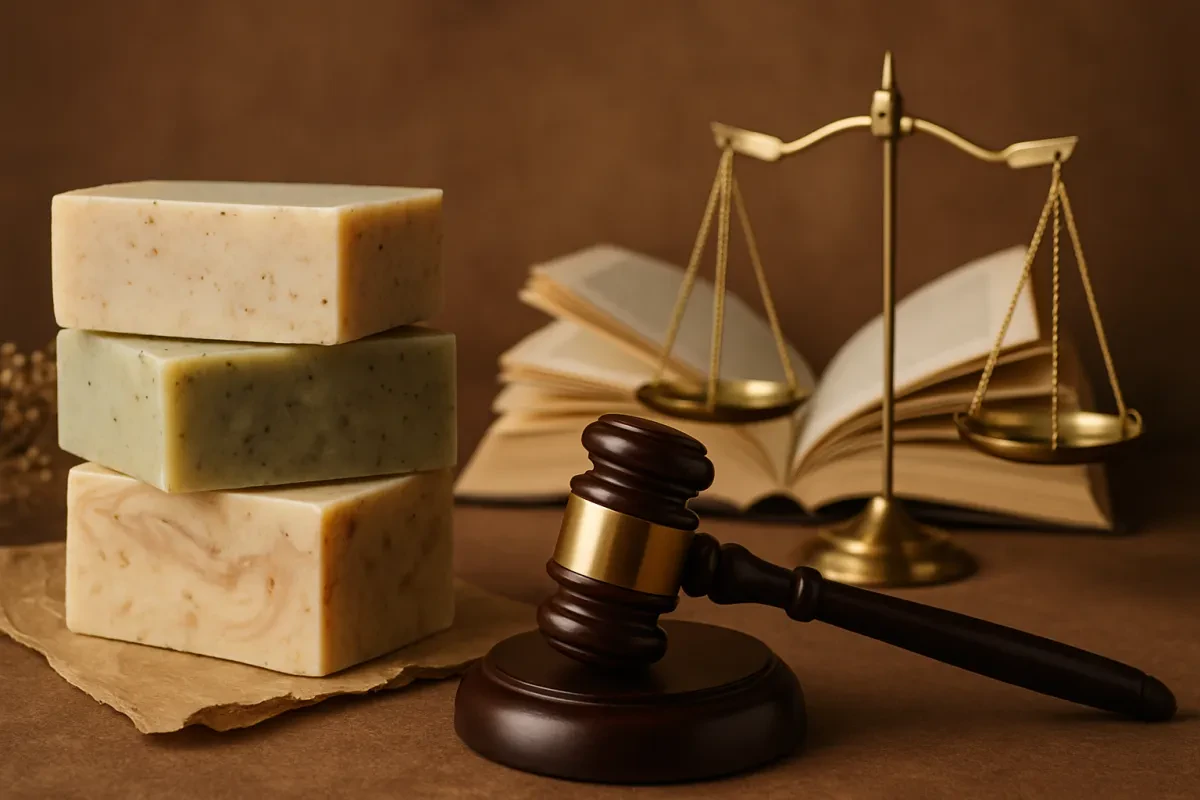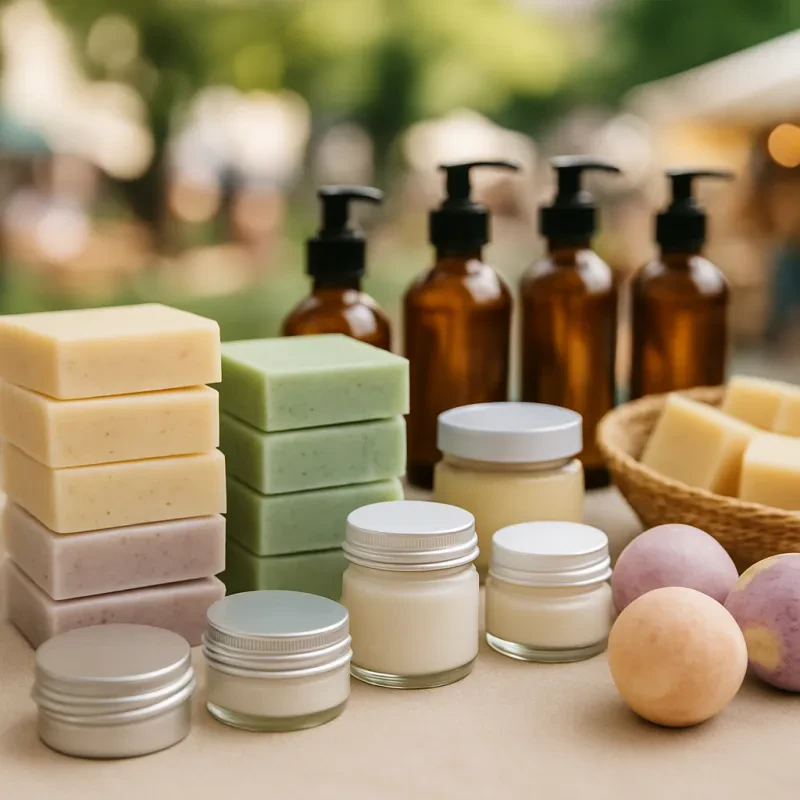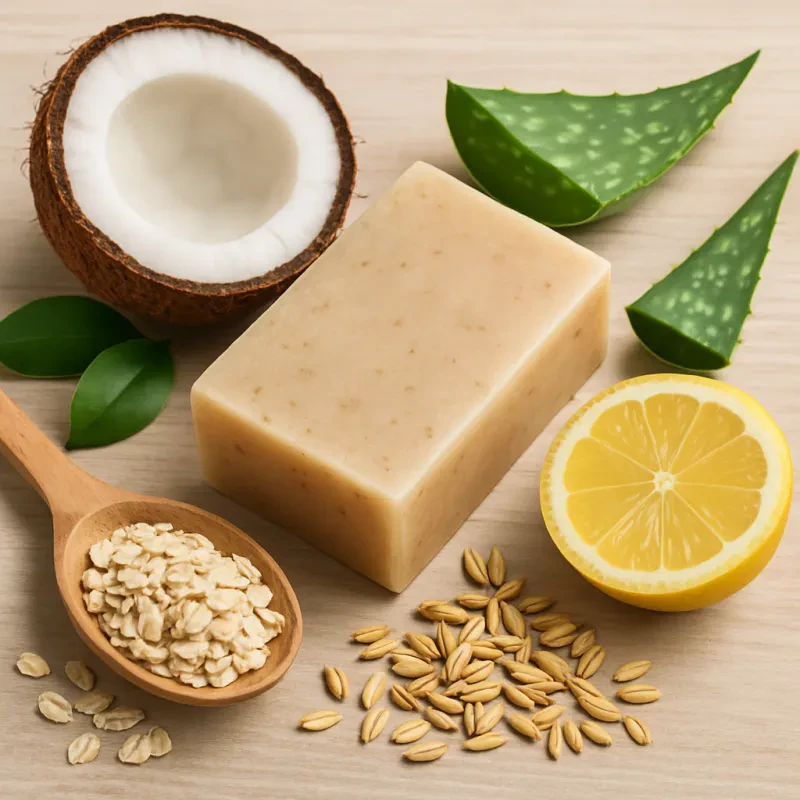Starting a handcrafted soap business can be an exciting and rewarding venture. Whether you’re creating soaps from scratch in your kitchen or scaling up production to sell at local markets, online shops, or in boutiques, it’s essential to navigate the legal landscape to ensure your business operates smoothly and remains compliant with regulations. Selling handcrafted soap isn’t just about making beautiful, fragrant bars; it involves understanding the laws that govern product safety, labeling, business operations, and more. Failing to comply with these legal requirements can lead to fines, lawsuits, or even business closure. To help you build a solid foundation for your business, this guide covers the key legal aspects you need to be aware of when selling handcrafted soap.
1. Register Your Business and Obtain Necessary Licenses
Before you start selling your handmade soaps, you need to make sure your business is properly registered with the appropriate authorities. Operating as an unregistered business or as a hobbyist may limit your ability to grow and could put you at risk of legal penalties.
Choose a Business Structure: The first step is deciding what type of business structure you will use. Common options for small soap businesses include sole proprietorships, partnerships, or limited liaability companies (LLCs). Each structure has different tax implications, liability protections, and administrative requirements, so it’s important to consult with a business attorney or accountant to determine the best fit for your needs.
Register Your Business Name: If you plan to operate under a name other than your personal name (for example, “Sweet Meadows Soap”), you’ll need to file a Doing Business As (DBA) or trade name registration with your local government or state.
Obtain Business Licenses and Permits: Depending on your location, you may need to obtain various business licenses or permits to legally operate. These can include a general business license, health department permits (if you’re making the soap in a commercial kitchen), and even a sales tax permit if you're selling products locally. Check with your city, county, and state government to ensure you're in compliance with all necessary permits.
2. Educate Yourself on the Regulations Regarding Your Products
Be sure that you know whether or not your soap is soap or a cosmetic. It’s essential to understand the regulatory guidelines for cosmetics and personal care products to avoid issues with health authorities like the U.S. Food and Drug Administration (FDA). If your soap is actually "soap", it is regulated by the Consumer Product Safety Commission (in the United States). According to the CPSC, soap is soap when "the product is labeled, sold, and represented only as soap. Making claims such as moisturizing skin, making the user smell nice, or deodorizing the body could classify the product as a cosmetic; making claims such as intending to treat skin conditions (like acne or eczema) or killing germs could classify the product as a drug." If you are promoting your soap as something that treats skin conditions in some way or another, then it is regulated by the FDA (in the United States). Other countries may have different regulations. Visit our regulations page to find helpful links on manufacturing and labeling regulations.
3. Protect Yourself with Insurance
When you start selling handcrafted soap, you should consider purchasing business insurance to protect yourself and your business. While insurance isn’t always legally required, it can help safeguard your business in case of a lawsuit or other issues. Here are three types of insurance to consider.
Product Liability Insurance: This is a critical form of insurance for soap makers. If someone claims they were harmed by your product (for example, an allergic reaction), product liability insurance can help cover legal costs and damages. Even though handcrafted soaps are generally safe, a lawsuit can happen if a customer experiences an adverse reaction, so having this insurance can protect your finances.
General Liability Insurance: This coverage protects against non-product-related claims, such as someone getting injured at your booth at a market or craft fair, or damage caused to someone else’s property by your business. It's a good idea to have general liability coverage, especially if you sell at public events.
Business Property Insurance: If you have a physical storefront, commercial kitchen, or other assets, you may want property insurance to cover loss or damage to your equipment, inventory, or workspace.
4. Sales Tax and Taxes
Understanding how sales tax applies to your soap sales is crucial for staying compliant and avoiding penalties. Sales tax requirements vary by state, and some states do not tax soap if it’s classified as a “cosmetic,” while others may tax it as a tangible good. Here’s what you need to know:
Sales Tax Permits: If your state requires sales tax on soap, you must register for a sales tax permit with your state’s tax authority. You will need to collect the appropriate sales tax from customers and remit it to the state on a regular basis.
Keep Detailed Records: It’s important to keep detailed records of all your soap sales, including customer invoices, sales tax collected, and purchases of materials. Accurate bookkeeping will help you file taxes correctly and avoid issues with the IRS or state tax authorities.
Income Tax: Like any business, your soap business will be subject to income tax. Whether you’re operating as a sole proprietor, LLC, or corporation, be sure to file taxes on the income generated from your soap sales. You may also qualify for deductions related to your business expenses, such as materials, marketing, insurance, and equipment.
5. Selling Online: E-Commerce Legalities
If you're planning to sell your handcrafted soap online, there are additional legal considerations related to e-commerce:
Platform Policies: Ensure that you comply with the terms of service of any online marketplaces you use, such as Etsy, Amazon, or your own e-commerce website. Some platforms have specific requirements related to product safety, labeling, and customer reviews.
Shipping and Returns: Be clear about your shipping policies, including shipping fees, delivery timeframes, and your return policy. Customers should know if returns or exchanges are possible, and under what conditions.
Data Privacy and Security: If you collect customer information (such as names, addresses, and credit card details), you must comply with data privacy laws, such as the General Data Protection Regulation (GDPR) in the EU or other applicable regulations depending on your location. Implement secure payment processing systems to protect your customers’ personal information.
6. Intellectual Property Protection
Finally, consider protecting your intellectual property to safeguard your brand. If your brand has a unique name or logo, consider registering a trademark to protect it from being used by others. A trademark ensures that no one else can legally use your brand’s name or logo in a way that could confuse customers.
Conclusion
Starting and running a handcrafted soap business requires not just creativity and passion but also an understanding of the legal aspects involved. By registering your business, complying with cosmetic regulations, labeling your products correctly, obtaining the necessary insurance, and adhering to tax and sales laws, you can build a legal and sustainable business that thrives. Stay informed, seek professional advice when necessary, and always prioritize your customers' safety and satisfaction. With these legal essentials in place, you can confidently grow your handcrafted soap business and focus on what you do best—creating high-quality, handmade products.



